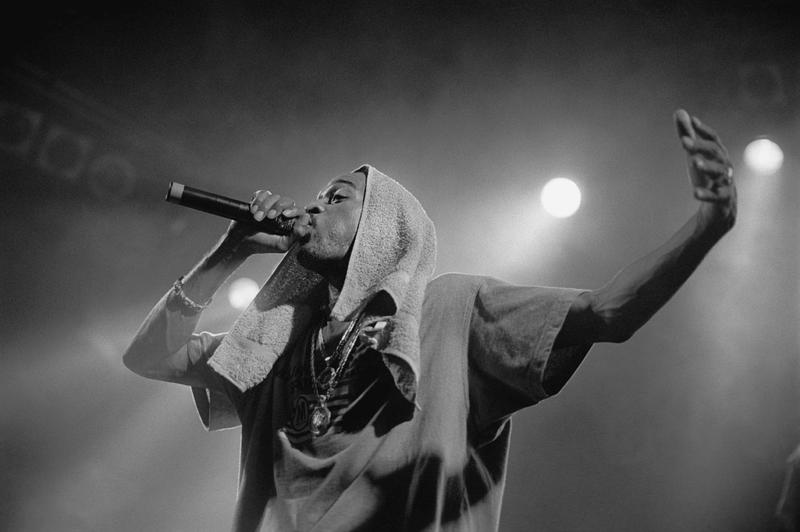
In the Big Daddy Kane track “Ain’t No Half-Steppin’” the rapper famously signs off with the line, “Hold up the peace sign, as-salamu alaykum.” — the traditional Arabic greeting for Muslims. It translates to “peace be upon you,” and it's not the only references to Islam in hip-hop's foundational tracks.
Many of the pioneers of the genre identified as Muslim including Rakim, Afrika Islam and Q-Tip.
“In the late 80s, early 90s, if you were to say walk around New York City riding the subway, you would see people wearing Africa medallions or Malcolm X paraphernalia,” said Zaheer Ali, the oral historian at the Brooklyn Historical Society.
Ali hosted a panel on "Islam and the Soul of Hip-Hop" on Wednesday. He said many rappers were heavily influenced by the Nation of Islam and the Five Percent Nation, an offshoot movement founded in Harlem in the 1960’s.
Rapper Lakim Shabazz’s 1988 song “Black is Black,” name drops The Final Call, the official newspaper of the Nation of Islam.
As hip-hop continued to evolve in the 1990’s, even non-Muslim rappers embraces the vernacular. “Peace” became a common tag to signify the end of a rap song.
Wes Jackson, the founder of the Brooklyn Hip-Hop Festival, said it wasn't a coincidence.
“That was from as-salamu alaykum, alaykum as-salam. There was so much language that we took that you didn't realize it because again it was just in the air,” he said.
Religion doesn't play the same prominent role in much of today's hip-hop. Ali said artists who identify as Muslim might not be looking to preach about their religion. But he said they are expressing themselves in different way.
“I don't think people are upholding themselves as necessarily models in this sense,” Ali said. “They're being just very honest about the nature of their struggle as an artist and for the most part I think people can connect with that.”
